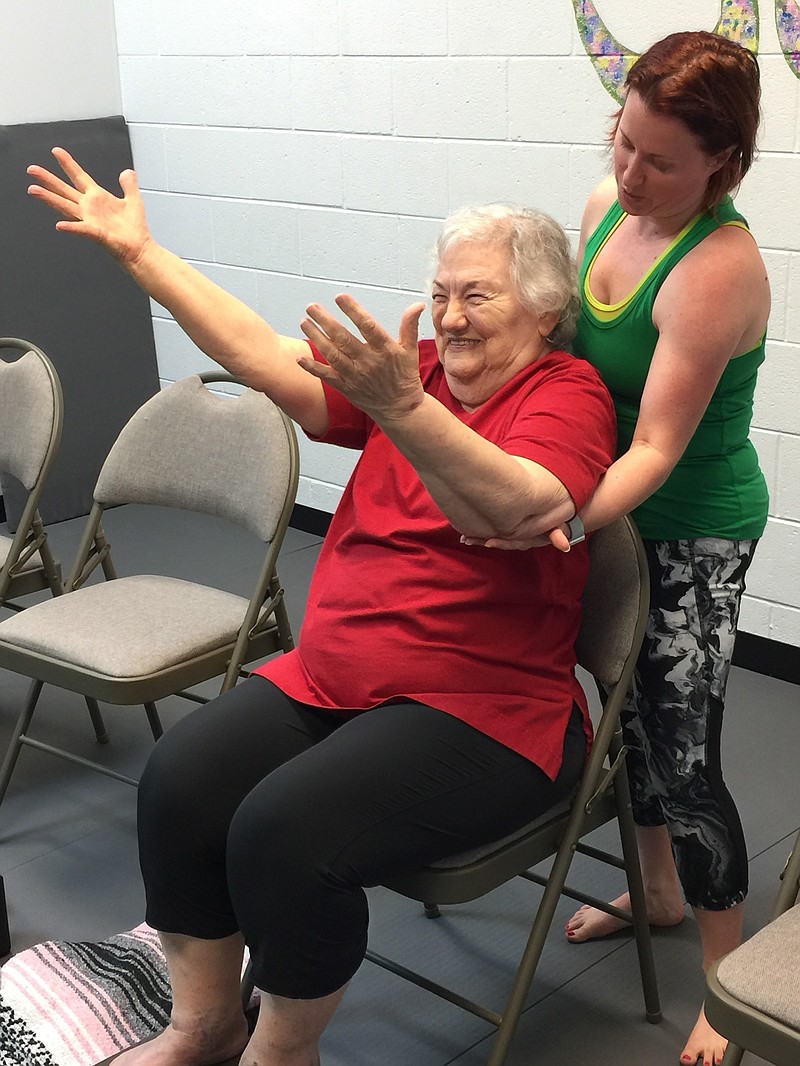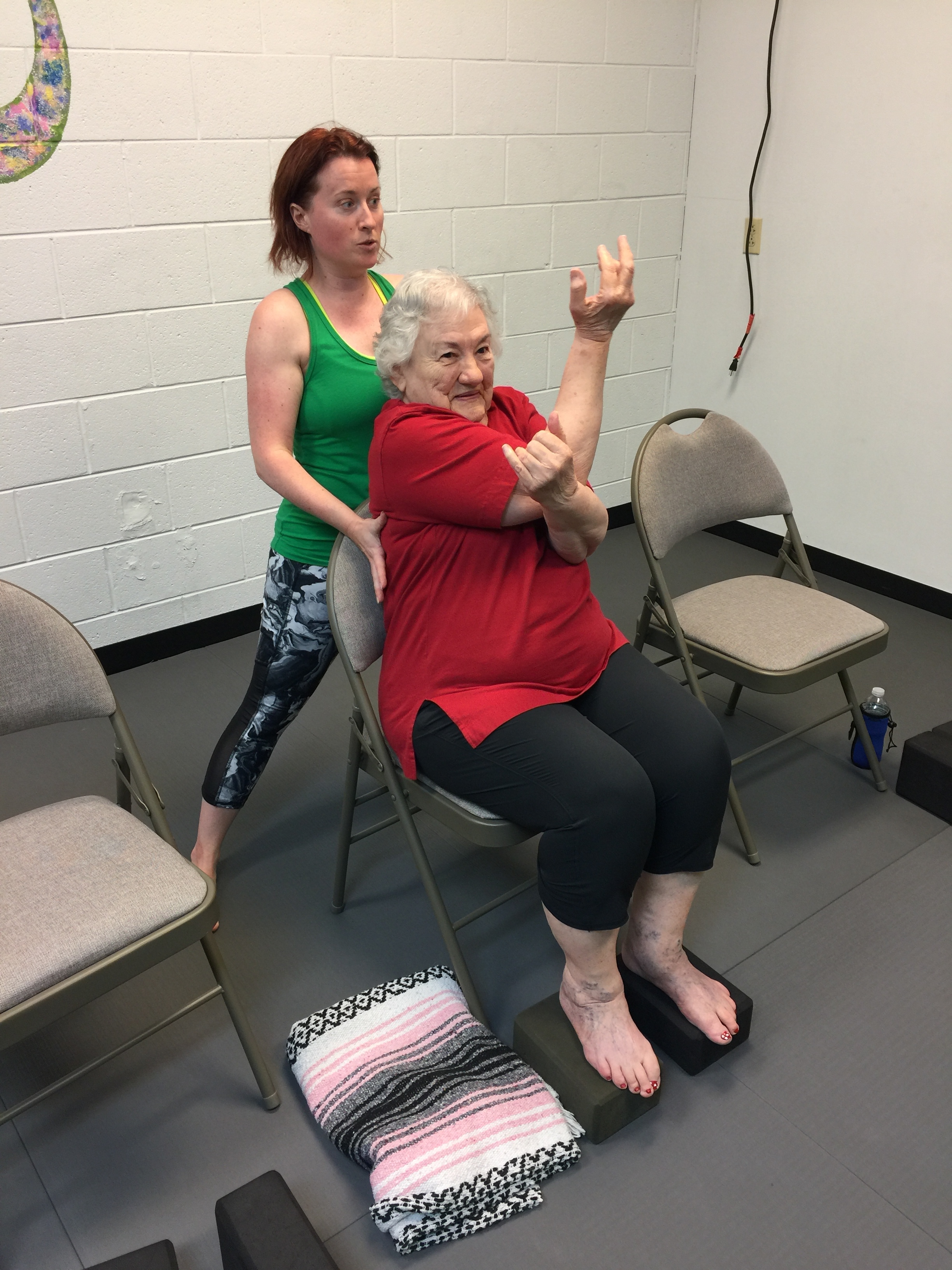A Page 1 headline in Wednesday's Times Free Press was ominous: "Deaths from falls among older Americans are on the rise."
The article noted that in recent years fatal falls have tripled among older Americans, peaking at 25,000 deaths yearly. A companion study in the Journal of the American Medical Association notes "improving muscle strength and balance" can help.
One answer might be yoga.
Thrive Yoga, an East Brainerd studio, has carved out a niche serving seniors with neurological problems, such as stroke recovery and Parkinson's.
"Yoga is great for neurological problems," said Jennifer Dixon, authorized Ashtanga yoga teacher and owner of Thrive Yoga and Wellness. "From a very basic level, you're combining conscious breath and movement."
As traditionally practiced in other parts of the world, yoga is as much for the old and sick as it is for the young and vigorous, said Dixon, who noted that her personal practice started with a back injury as a young adult.
Maggie Bailey, who teaches an adaptive chair yoga class at Thrive Yoga on Tuesdays at 4 p.m., has had two TIA strokes herself, and knows the restorative power of a yoga practice.
She says the Department of Veterans Affairs has released a study that shows vets with neurological disabilities have been helped by yoga.
"The VA study showed a vast improvement in gait and stride when it came to actual walking ability," she said.
Dixon and Bailey are careful not to make any specific medical claims linked to yoga, but both know from personal and anecdotal experience that yoga can help people, especially elderly folks, who begin to lose their balance.
Rachel Waters, a stroke patient who has worked with Bailey, said she is confident yoga has helped her recover. Four years ago, she wore a sling on her left arm. Now, she has a better range of motion in the arm, and she's confident that she can pick herself up if she falls down.
View other columns by Mark Kennedy
"I know it has [helped]," Waters said. "I have better balance and I can do more."
Her family said Waters once fell out of her bed when she was startled by a burglar alarm, which went off during a storm. But instead of being trapped on the floor for hours, she was able to climb back into bed without calling for help.
"Miss Rachel is 88. She's four years out from a stroke and she wants to live alone," said Bailey, who regularly consults with Waters about adaptive yoga. "I want them [older yoga practicers] to get down on the ground and get safely back up. [Falling] is a legitimate fear for the older population that comes through here."
Bailey said that "chair yoga," which adapts standing poses into seated ones, effectively takes gravity out of the equation.
Over time, Bailey has developed a team approach to yoga, creating a paired practice which often involves a seated senior and a standing caregiver. She has worked with paraplegics and people with brain trauma.
"I had one client who came in with his wife," she said, "and all he wanted to do was to be able to dance with her to their song."
Contact Mark Kennedy at mkennedy@timesfreepress.com or 423-757-6645.

